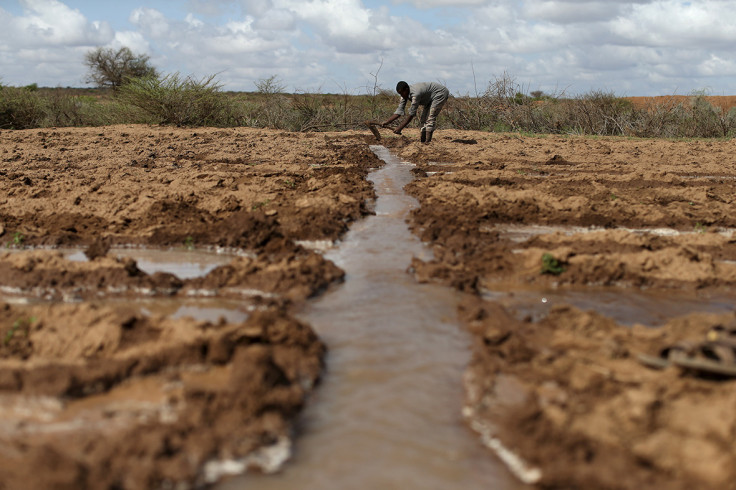Extreme weather conditions have killed 2 million people in 50 years
The WMO report says that extreme weather conditions have killed 2 million people since 1970, "impacting the poorest of the poor".

The UN's World Meteorological Organisation (WMO) has revealed that since 1970, two million people have been killed by extreme weather, climate, and water-related events. The extreme weather events, that are "impacting the poorest of the poor", caused nearly 12,000 reported disasters between 1970 and 2021.
The WMO's Atlas of Mortality update investigation, also found that 90 per cent of the deaths caused by environmental hazards, occurred in developing countries.
Prof. Petteri Taalas, the WMO's Secretary General, said that: "The most vulnerable communities, unfortunately, bear the brunt of weather, climate, and water-related hazards."
He used Cyclone Mocha which affected Myanmar and parts of Bangladesh last week as an example, saying that the storm "caused widespread devastation... impacting the poorest of the poor".
He added: "In the past, both Myanmar and Bangladesh suffered death tolls of tens and even hundreds of thousands of people."
The WMO report also revealed that Bangladesh has the highest death toll in Asia, with 520,758 deaths since 1970.
In Africa, the climate and water extremes caused more than 700,000 deaths. Droughts caused 95 per cent of the lives lost.
In Europe, extreme temperatures were the leading cause of reported deaths, and floods were the leading factor for economic losses.
In South America, floods caused almost 60,000 deaths – accounting for 61 per cent of those killed.
Over 60 per cent of economic losses are due to climate-related disasters for developed economies. The USA has been subject to a $1.7 trillion economic loss, which accounts for 39 per cent of finances lost to weather hazards worldwide.
However, in small island developing states, some disasters have led to an economic loss of more than 100 per cent, the WMO said.
The WMO report also showed that the climate-related mortality rate is declining, thanks to early warning strategies. 22,608 people were killed in 2021-2023.
However, economic losses have increased, with the larger part being assigned to storms. It was reported that Asia accounted for 47 per cent of all deaths worldwide, with tropical cyclones being the leading cause of death.
According to the report issued by the WMO, global temperatures are likely to surpass record levels in the next five years. There is a 98 per cent likelihood that at least one of the next five years will be the warmest on record, the UN predicted.
In its latest report, @WMO estimates that a very warm episode of the El Niño phenomenon between now and 2027, will lead to the global average temperature temporarily exceeding the 1.5°C threshold, breaking temperature records.
— UN Climate Change (@UNFCCC) May 19, 2023
Listen to @WMO's message here. pic.twitter.com/5M4gOEpFqS
The expected surge of temperature levels is fuelled by El Nino, and by heat-trapping greenhouse gasses, like methane and carbon dioxide.
Rodney Martinez, WMO Representative, said: "2016 was the warmest year ever recorded... and that was the combination of a very intense El Nino episode in 2016 and human-induced global warming due to greenhouse gases."
El Nino refers to an increase of sea surface temperatures, in the Pacific Ocean. El Nino affects marine life and leads to extremely warm and dry weather conditions in the North.
"We are no longer at a time when we should be surprised by El Nino... And it is now the responsibility of governments to take advantage of this for adequate prevention," he concluded.
The UN Secretary-General, Antonio Guterres, wants high-quality early warning systems for extreme disasters to reach everyone on a global scale by the end of 2027.
Early warning is a proven, and effective climate adaptation method – saving lives and providing at least a tenfold return on investment.
The WMO's decision-making body, the World Meteorological Congress, has approved the latest developments in the early warning strategy. The United Nations Early Warnings for All will discuss the developments, and was opened by Swiss President Alain Berset, in Geneva this week.
#MeteoWorld: Early warnings work. They must work for everyone.
— World Meteorological Organization (@WMO) May 22, 2023
Join opening discussions at the World Meteorological Congress focusing on #EarlyWarningsForAll.
🔗 https://t.co/7eStuTpmXy pic.twitter.com/OTdkngsUkv
The strategy has received a huge amount of support from climate-related organisations. National meteorological and hydrological services, responsible for issuing the early warnings, together with representatives of UN agencies, development banks, and governments, will also attend the "early warning strategy" sessions.
"Thanks to early warnings and disaster management, these catastrophic mortality rates are now thankfully history. Early warnings save lives," the Secretary General of the WMO, Petteri Taalas said.
© Copyright IBTimes 2025. All rights reserved.






















